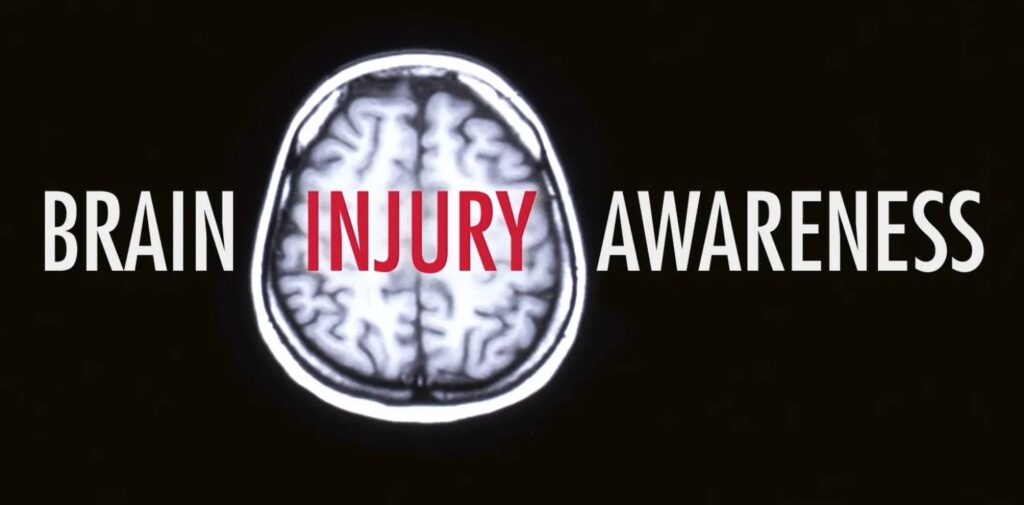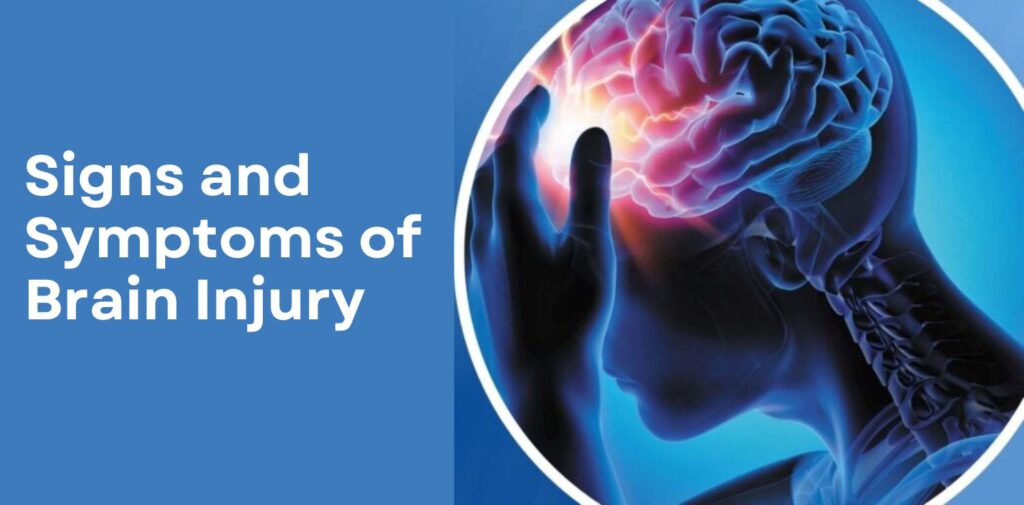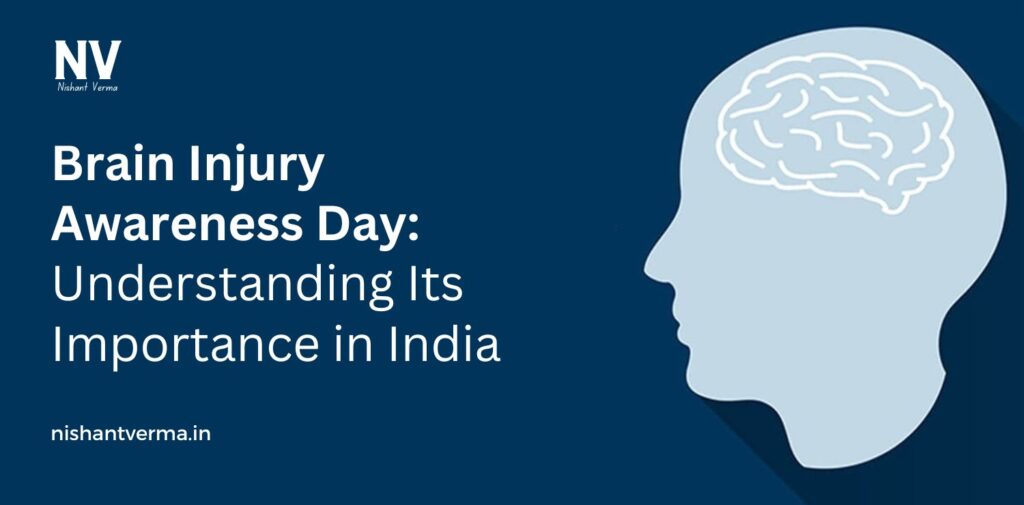Brain Injury Awareness Day is a day dedicated to raising awareness about brain injuries and the challenges that people who suffer from them face in their daily lives. This day serves as a reminder of the importance of brain health, the need for prevention, and the ways we can support individuals who have experienced a brain injury. In India, where the focus on mental and physical health is gradually growing, it’s important to understand the significance of this day and how it affects people across the country.
What Is Brain Injury?
A brain injury refers to any injury that affects the brain’s normal function. This can be caused by an external force, such as a blow to the head, or by a medical condition that affects brain activity. Brain injuries are classified into two main types:
- Traumatic Brain Injury (TBI) – This occurs when an external force causes damage to the brain. It can happen during accidents, falls, sports injuries, or violent attacks. The damage can be mild, moderate, or severe, and can lead to various symptoms such as headaches, memory loss, difficulty speaking, and in some cases, permanent disabilities.
- Acquired Brain Injury (ABI) – This type of injury is caused by internal factors, such as strokes, infections, tumors, or lack of oxygen to the brain. It can also be caused by conditions like brain aneurysms or brain infections. ABIs can have lasting effects on memory, movement, and speech, and may even alter a person’s behavior or personality.
Both types of brain injuries can have serious consequences, and the recovery process can be long and challenging. This is why Brain Injury Awareness Day is so important — it helps people understand the gravity of brain injuries and how they can be prevented and treated.

Why Brain Injury Awareness Day Matters
Brain injuries can happen to anyone. In India, many people suffer from brain injuries due to road accidents, falls, or medical conditions. The numbers are growing, and with the rise in accidents and sports-related injuries, brain injuries are becoming a significant public health concern. In fact, the World Health Organization (WHO) estimates that road traffic injuries are the leading cause of death and disability in the world, and India has one of the highest rates of road accidents globally.
Brain Injury Awareness Day helps shine a light on these issues, reminding people of the importance of protecting the brain and seeking proper treatment when injuries occur. It also raises awareness about the rehabilitation process, which is often long and expensive, but essential for people to regain their independence and quality of life.
The Impact of Brain Injuries in India
India has a large population, and due to its high rate of accidents and an increasing number of people engaging in high-risk activities like sports, the number of brain injuries is also on the rise. Many people in India still do not fully understand the severity of brain injuries, and as a result, proper medical care and treatment might be delayed or overlooked.
In rural areas, people may not have access to quality healthcare, and brain injuries can go unnoticed or untreated. This is a big challenge because early diagnosis and treatment are crucial for recovery. Without proper care, individuals suffering from brain injuries may face long-term health complications, including physical, cognitive, and emotional problems.
Additionally, the lack of awareness about brain injuries means that many people might not know the signs and symptoms to look for, or how to help someone who has sustained a brain injury. For example, if a person experiences a fall or a blow to the head, they may not know that a brain injury could cause symptoms such as dizziness, confusion, nausea, or loss of consciousness.
By observing Brain Injury Awareness Day, India can take important steps toward educating its population about brain injuries and the importance of early intervention. This day can encourage more people to seek medical attention after accidents and be proactive about their health.

Signs and Symptoms of Brain Injury
It’s important for every individual to recognize the signs of a brain injury. The symptoms of a brain injury can vary depending on the severity of the injury and the part of the brain affected. Some common symptoms include:
- Headaches – This is one of the most common symptoms after a brain injury.
- Dizziness or Balance Problems – If you or someone you know experiences difficulty standing or feeling off balance after a head injury, it could be a sign of a brain injury.
- Memory Loss – Brain injuries can affect memory, making it hard to remember things.
- Confusion or Difficulty Concentrating – Difficulty thinking clearly or staying focused can occur after a brain injury.
- Changes in Mood or Behavior – Brain injuries can lead to mood swings, depression, or other emotional changes.
- Nausea or Vomiting – These symptoms are often associated with concussions, which are a type of mild brain injury.
- Loss of Consciousness – In more severe cases, a person may lose consciousness after a brain injury.
- Seizures – Brain injuries can sometimes lead to seizures, which are abnormal brain activity that causes shaking or convulsions.
If you or someone you know experiences any of these symptoms after a head injury, it’s essential to seek medical attention immediately. Early treatment can make a significant difference in recovery.
Prevention and Safety Measures
Preventing brain injuries is possible, and several measures can be taken to reduce the risk of accidents. Here are some important safety tips that can help:
- Wear Helmets – Whether you’re cycling, riding a motorcycle, or participating in sports like cricket or football, wearing a helmet can protect your head from injury.
- Drive Safely – Road accidents are one of the leading causes of brain injuries in India. Following traffic rules, wearing seat belts, and avoiding distractions while driving can help prevent accidents.
- Use Seat Belts – Always wear a seat belt while traveling in a car. Seat belts can significantly reduce the risk of serious head injuries in case of an accident.
- Fall Prevention – In older adults, falls are a major cause of brain injuries. Installing handrails, improving lighting in homes, and using non-slip mats can help prevent falls.
- Educate Children and Adults – Raising awareness about brain injuries and how to prevent them is vital. Schools, workplaces, and communities can organize programs that educate people about brain safety.

Supporting Those with Brain Injuries
For individuals who have suffered a brain injury, the recovery process can be long and challenging. Support from family, friends, and healthcare professionals is crucial. In India, where social stigma can sometimes make it difficult for people to talk about their health issues, it’s important to create an environment of understanding and support.
Family members play an important role in the recovery of people with brain injuries. They can help with everyday tasks, encourage therapy, and provide emotional support during difficult times. In many cases, rehabilitation therapies like physiotherapy, speech therapy, and occupational therapy can help individuals regain their independence.
Communities can also support those affected by brain injuries by organizing rehabilitation programs, support groups, and awareness campaigns. These initiatives help people feel less isolated and empower them to take control of their health.
Conclusion
Brain Injury Awareness Day is a vital occasion to remind us all of the importance of brain health, safety, and the well-being of individuals who suffer from brain injuries. In India, raising awareness about brain injuries is crucial to reducing the number of accidents, providing better healthcare for those in need, and creating a more supportive environment for recovery.
By understanding the significance of brain injury prevention, recognizing the symptoms, and offering support to those who are recovering, we can help make a positive difference in the lives of many people. Let’s use Brain Injury Awareness Day to spread knowledge, show compassion, and work together to prevent brain injuries in the future.




